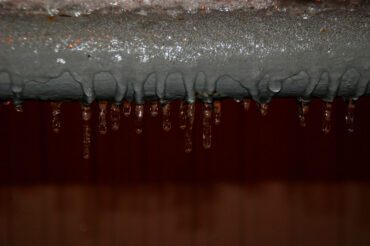The winter months in and around Kansas City, MO can produce subzero temperatures, which can give homeowners in the area a rude surprise—frozen pipes bursting. When water freezes, it expands. Have you ever put a can of soda in the freezer to chill, only to forget about it for quite some time? That can of soda will either explode or look very chubby. When water freezes in a pipe due to low temperatures, the pipe expands in the same way. If it expands enough, the pipe bursts, water escapes, and serious, costly damages occur—thousands of dollars worth of damages, in fact.
As a leading Kansas City plumber, Top Notch Heating, Cooling & Plumbing can provide you with important preventative maintenance tips to avoid dealing with frozen pipes this winter.
Prevent Frozen Pipes Before the Real Cold
There are three major causes of frozen pipes: quick drops in temperature, poor insulation, and thermostats that are set too low. Here are some important steps you can take now (before the real cold weather hits us) to prevent frozen pipes:
- Insulate pipes in your home’s crawl spaces and attic; exposed pipes are most susceptible to freezing. As a general rule, remember that the more insulation you use, the better protected your pipes will be.
- Use heat tape on exposed water pipes to prevent your pipes from freezing. Heat tape requires electricity, but it can be used just on those days and nights when the temperature is below freezing and you’re concerned about preventing frozen pipes.
- Seal leaks that may allow cold air inside near where pipes are located. You should be on the lookout for air leaks around electrical wiring, dry vents, and pipes. Use caulk or insulation to keep the cold air out. In freezing temperatures, even a small opening can let in enough cold air to cause a pipe to freeze.
- Disconnect garden hoses and, if possible, use an indoor valve to shut off and drain water from pipes leading to outside faucets.
Prevent Frozen Pipes When Travelling
For many families in and around Kansas City, the wintertime means traveling to warmer, more comfortable locations. If you are traveling, please don’t forget to think about your pipes. Here’s what you can do before you leave to protect your pipes:
- Set the thermostat in your house to no lower than 55 degrees.
- Ask a trusted family friend or neighbor to check your house daily to make sure it’s warm enough to prevent freezing pipes.
- Shut off and drain the water system—just remember that this may deactivate your fire protection sprinkler system, if you have one.
Dealing With Frozen Pipes
It’s possible that even after following these preventative maintenance tips, you have to deal with frozen pipes. However, this doesn’t necessarily mean they’ve burst. We suggest that you turn on your faucets—if nothing comes out, leave the faucets on and call us. Never attempt to thaw a pipe with a torch or other open flame because it can create a serious fire hazard. If you’ve reached the point where you’re dealing with a bursting pipe, turn off the water at the main shutoff valve in your house; remember to leave the faucets turned on.
If you need to repair frozen pipes or require a new pipe installation, please contact Top Notch Heating, Cooling & Plumbing. We’ll send a qualified, experienced plumber your way who can assess the situation.






